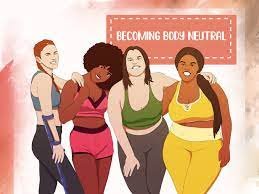
Is Your Teen a Picky Eater or Struggling with an Eating Disorder?
Understanding the eating habits of teenagers can be a delicate balance for parents and caregivers. While many teens exhibit selective eating behaviors, it’s important to recognize when these preferences may indicate a deeper issue like an eating disorder. This blog post aims to provide clarity on distinguishing between typical picky eating and potential signs of an eating disorder, offering valuable insights into when professional intervention, such as counseling with an eating disorder therapist, may be necessary.

The Winning Mind: How a Sports Counselor Can Help Athletes Thrive
Working with a sports counselor offers numerous benefits that can significantly enhance an athlete's performance and overall well-being. A sports counselor, specializing in sports mental health therapy, helps athletes develop the mental resilience, focus, and self-awareness necessary for peak performance. By addressing psychological barriers, managing stress, and fostering a positive mindset, athletes can achieve their full potential both on and off the field. Whether you're in Houston, Texas, or beyond, engaging with a sports counselor can be a game-changer in reaching new heights of success in your athletic career.

Overexercising to Cope with Mental Health Challenges
Discover the hidden struggles of overexercising as a coping mechanism for mental health challenges in our latest blog post. Learn about the risks, consequences, and alternative strategies for achieving balance and well-being. Dive into the complexities of this issue and find support on your journey to a healthier relationship with exercise and mental health

Conquering Exercise Induced Anxiety
I delve into the complex world of exercise-induced anxiety and offer practical solutions to help you overcome this common challenge. From understanding the root causes of anxiety during workouts to implementing proven coping mechanisms, this comprehensive guide will empower you to take control of your fitness journey with confidence and ease. Whether you're a seasoned athlete or just starting your fitness journey, join us as we explore effective strategies for managing exercise-induced anxiety and reclaiming the joy of movement.

Coping With Identity Loss As a Retired Athlete
Retiring from sports can be a profoundly challenging transition for athletes, often leading to a sense of identity loss. For many, their sport is not just an activity but a core part of who they are. When this defining element is suddenly absent, it can leave athletes feeling lost and uncertain about their future. This blog covers effective tools and strategies to cope with this identity loss and build a fulfilling life beyond athletics.

Embracing Body Changes: Navigating Weight Gain with Kindness
Navigating body changes and weight gain requires understanding, acceptance, and self-compassion. This journey acknowledges that our bodies naturally evolve over time and that fluctuations in weight are a normal part of life. It's about embracing these changes with kindness and recognizing that our worth is not defined by our physical appearance. This process involves challenging societal beauty standards and cultivating a mindset of body positivity and self-love. By practicing self-care, nurturing our bodies with nutritious foods, finding joy in movement, and seeking support when needed, we can navigate the challenges of body changes and weight gain with resilience and grace. Embracing this journey empowers us to celebrate the unique beauty and strength of our bodies, fostering a sense of empowerment and self-acceptance along the way.

What is High Functioning Depression?
High functioning depression, often referred to as "smiling depression," is a form of depression characterized by individuals appearing functional and successful on the surface while silently battling with persistent feelings of sadness, anxiety, or emptiness. Unlike traditional depression, where symptoms may be more visible, those with high functioning depression often mask their inner struggles, making it challenging for others to recognize their emotional turmoil. In this article, we will delve into the complexities of high functioning depression, exploring its signs, symptoms, and strategies for support and healing.

The Relationship Between Perfectionism and Disordered Eating
In this blog post, we'll delve into the intricate connection between perfectionism and disordered eating, exploring how the relentless pursuit of flawlessness can fuel unhealthy patterns of eating and contribute to the development of disordered eating behaviors. Through understanding and compassion, we'll illuminate the pathways to healing and recovery, offering insights and strategies to support individuals in breaking free from the grips of perfectionism and fostering a healthier relationship with food and self.

Navigating Body Grief to Promote Body Acceptance
Navigating body grief entails acknowledging the profound impact of societal ideals, such as the thin ideal, on our sense of self-worth and acceptance. When we mourn the loss of the body we once idealized, we confront the unrealistic standards perpetuated by society. However, through this process, we can cultivate a deeper understanding and acceptance of our bodies as they are, embracing their uniqueness and inherent value beyond external appearances. By letting go of unrealistic expectations and embracing self-compassion, we pave the way for a journey towards body acceptance and self-love.

Fighting Against Fatphobia
Explore effective strategies and empowering approaches for combating fatphobia. Learn how to challenge societal prejudices, promote body acceptance, and foster a more inclusive and accepting environment. Discover the importance of empathy, education, and advocacy in creating a world where individuals of all body sizes are valued and respected.

Eating Disorder vs Disordered eating. What’s the difference?
Navigating the realm of food and body image can be challenging, especially when it comes to understanding the distinction between an eating disorder and disordered eating. While both involve unhealthy relationships with food and body image, there are crucial differences that impact diagnosis, treatment, and recovery. In this guide, we'll explore the nuances between eating disorders and disordered eating, providing insights to help individuals and their loved ones recognize the signs, seek appropriate support, and embark on the path to healing and well-being.